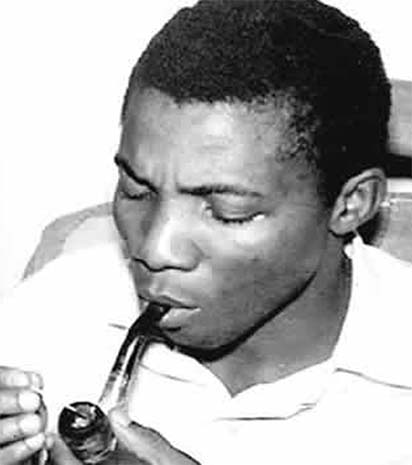The essence of the late firebrand poet, Christopher Okigbo, has again echoed as the literary community celebrated him in Abuja.
Among them were Nobel laureate, Prof. Wole Soyinka, who commended the United Nations Educational, Scientific, and Cultural Organisation (UNESCO) for including Christopher Okigbo’s Collection in its Memory of the World (MoW) Register in 2007.
They urged UNESCO to take a step further in promoting Okigbo’s literary works for cultural exchange among continents.
The stakeholders gave the advice at Christopher Okigbo’s Commemorative Event themed “The Importance of Christopher Okigbo’s Nomination into the UNESCO Memory of the World Register and Its Impact on Nigeria’s Cultural Heritage and Literary History.”
The event was organised by Christopher Okigbo Foundation and UNESCO in Abuja on Thursday.
Okigbo, 1932-1967, was a Nigerian poet, widely regarded as the greatest anglophone, post-colonial, and modernist African poet of the 20th century.
Okigbo was honoured with a prestigious MoW register following his collection which includes manuscripts, handwritten and typescripts of previously published and also unpublished poems, experimental writing, literary projects, sketches and doodles.
Others are correspondence of Christopher Okigbo, journals, manuscripts of his contemporaries, travel documents, photographs, typescripts of other interviews, amongst others, dating from 1956 to his death in 1967.
Soyinka, who was the special guest of honour at the event, commended Christopher Okigbo Foundation and UNESCO for organising the commemorative event.
The poetic writer, who presented a poem in commemorating Okigbo, added that Okigbo’s literary works need to be celebrated and served as cultural exchange not only in Nigeria, Africa but all continents across the world.
Also speaking, Mr Usman Akanbi, National President, Association of Nigerian Authors (ANA) said some literary works produced by great writers like Okigbo should be taken to other continents to promote cultural exchange.
Akanbi said, “there is need to make some literary works produced by great writers like Okigbo available globally, not just to sit within Nigeria, not just to sit with the others of UNESCO.
“We should look to take it further, take it into other continents, so that there will be cultural exchange between us and other continents that have produced great writers like Okigbo.”
In his key note address, Prof. Okey Ikechukwu, said Okigbo’s inclusion in such a prestigious register reinforced his position not just as a national icon, but as a figure of global literary importance.
According to him, it provides a catalyst for cultural engagement, as it inspires further cultural events and public discourse.
“In addition to the foregoing, this listing by UNESCO reasserts the literary value of Okigbo, who is widely celebrated as Africa’s most original modernist poet in English.
“He blends Igbo spiritual orientation, Western myth, and modernist technique in his works. And his inclusion in MoW further enhances his standing as one of the major pioneers of postcolonial literary expression.
“His listing will hopefully help in Inspiring future generations, and motivating publishers, scholars, and artists to pay greater attention to his works and legacy,” don said.
Also, Obiageli Okigbo, daughter and Founder of Christopher Okigbo Foundation, highlighted the uniqueness of Okigbo’s literary works,
She said Okigbo’s poems married his deep familiarity of the Western literary canon with his understanding of Igbo mythology, evoking richly naturalistic Igbo landscapes with symbolic reflections about his personal life.
“Numerous studies and tributes continue to attest to Christopher Okigbo’s significance and uniqueness in modern African letters, ranging from monographs on his work, articles, anthologies, biographies, book chapters, conferences, poetic and literary tributes published across the world, as well as doctoral and master’s dissertations at least.
“Against the foregoing background, the documents represent a much awaited source of unique insights into hitherto unknown aspects of this outstanding poet’s life and art.”
The foundation founder said Okigbo’s collection possessed three main criteria, the cultural value, the historic value, and the artistic value.
“For example, for cultural value, we found in the documents some experimental poems in my father’s mother tongue Igbo, which validate present-day arguments for writing in African languages.
“There was also a documented proposal for a book on oral Igbo tradition, claiming it as an art in itself rather than a mere anthropological record.
“For the historic value, some of these papers were crucial for eliminating the finer nuances of Nigerian post-colonial history, politics and artistic development.
“They relate to the crisis of the 1962-1966, the emergence of Biafra in 1967, and the subsequent civil war of 1967-1970.
“For example, there are drafts of Okigbo’s anthem to Biafra, ‘Land of Our Birth’, and other documents like his dedication of Path of Thunder to the legendary heroes of the Jan. 15 Revolution.
According to her, for the artistic value, we found essays where he describes the tradition of African modernist poetry in English, of which he considers himself a representative, as blending the oral African and modern European traditions.
“So, you might say, where did these papers come from? Where did we get them? That’s the next thing. The original custodian was my uncle, Dr Pius Okigbo, who salvaged the remnants of papers and books from my father’s Enugu’s residence, which had been bombed in the outbreak of the Nigerian Biafra crisis.
“As I was growing up, Uncle P, as we fondly called him, would tell me about a trunk that he had saved from the flames.
But he never showed me, he just kept them like a nest, like a human nest.
“And later, when he passed in 2000, the search for the missing papers started, and finally, in 2003, they were legally validated and passed on to me. So, this was the first crucial passage from a family heritage to a public legacy.”



